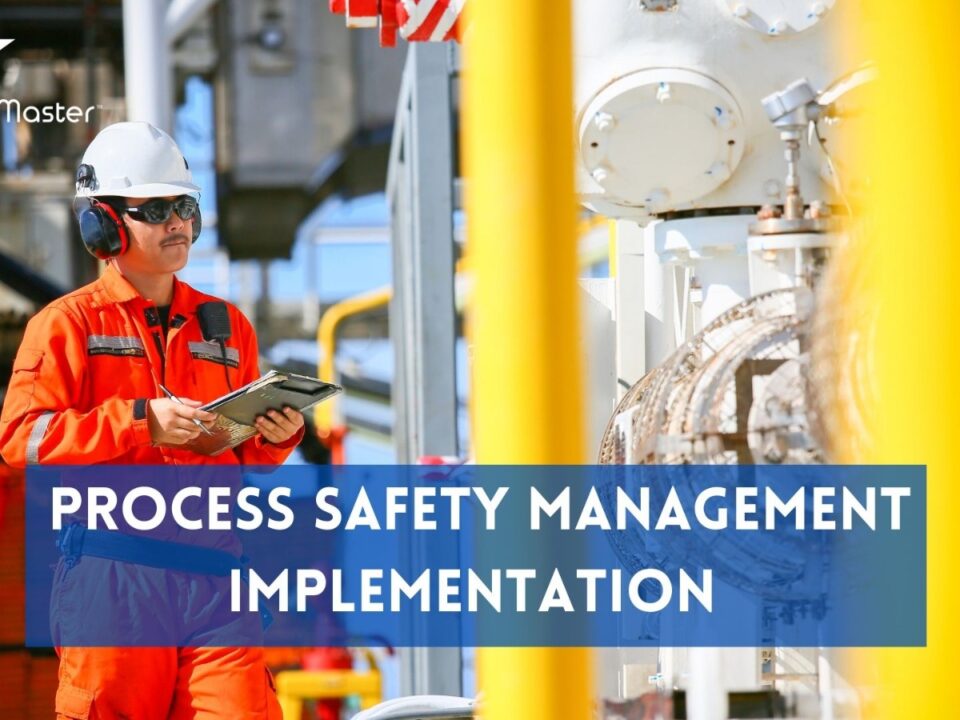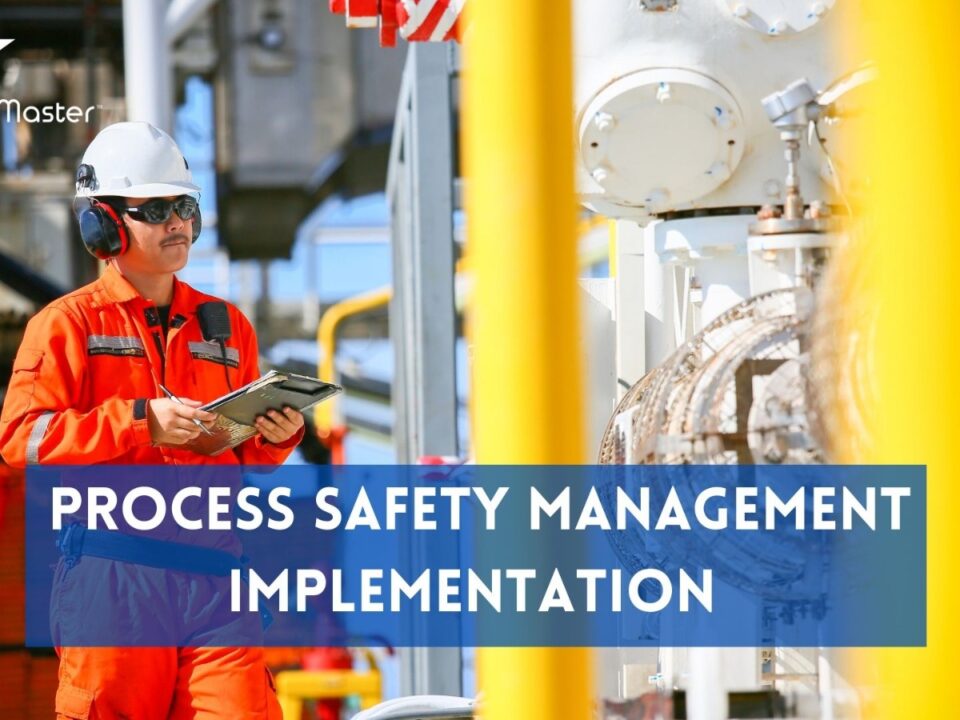Understanding the Importance of Process Safety Management Implementation in India: A Critical Analysis

Uncovering Potential Hazards: The Role of Electrical Safety Audits in Improving Workplace Safety in Indian Manufacturing Industries
October 13, 2023
Delving into Mechanical Integrity and Quality Assurance Programs: A Prerequisite for Success in Process Industries
October 13, 2023In this article, we delve into the intricate details surrounding Process Safety Management (PSM) implementation in India, shedding light on its utmost significance. With a critical analytical approach, we aim to not only highlight the existing problem but also offer valuable insights into the implications of effective PSM practices. Stay tuned as we uncover the key considerations, challenges, and potential solutions that stakeholders need to be mindful of. By the end of this read, you will have a comprehensive understanding of the importance of PSM implementation in India, ensuring a safer and more secure industrial landscape.
Introduction
Process Safety Management (PSM) is an essential aspect of industrial operations, ensuring the safety and well-being of workers, communities, and the environment. In India, where rapid industrialization is taking place across various sectors, the implementation of robust process safety measures becomes paramount. However, gaps in PSM implementation have resulted in unfortunate incidents that have highlighted the urgent need for comprehensive safety protocols. In this insightful article, we will delve into the importance of Process Safety Management implementation in India. We will examine historical incidents and analyze key elements of PSM to understand its significance. Moreover, we will explore successful case studies that showcase effective PSM practices in Indian industries. By shedding light on the challenges faced in implementing process safety measures and exploring regulatory frameworks, this article promises to provide a comprehensive understanding of PSM’s critical role
Overview of Process Safety Management (PSM)
Process Safety Management (PSM) is an indispensable framework designed to prevent catastrophic accidents and protect human lives, the environment, and assets in industries dealing with hazardous materials. It encompasses a comprehensive set of principles, strategies, and practices that aim to identify, evaluate, and mitigate risks associated with chemical processes. PSM ensures that a systematic approach is adopted throughout the lifecycle of a process – from design and construction to operation and maintenance – thereby fostering a culture of safety. At its core, PSM revolves around the understanding that accidents are not mere coincidences but rather the result of underlying failures in management systems. It emphasizes the integration of technical know-how, operational discipline, organizational culture, and regulatory compliance. By entrusting responsibility to all levels of an organization and fostering proactive hazard identification and risk analysis techniques, PSM serves as a powerful tool for preventing major incidents that could have devastating consequences.
Through its holistic approach to safety management, PSM aims not only to address potential hazards but also foster continuous improvement within industrial sectors. By adopting best practices in engineering design standards, process control systems, maintenance strategies, emergency response preparedness, training programs for personnel at all levels of an organization, PSM paves the way for long-term sustainable growth while ensuring safety remains paramount.
In India’s rapidly expanding industrial landscape where chemical process industries play a pivotal role in economic development, understanding the importance of implementing robust Process Safety Management systems becomes crucial. With effective implementation of PSM principles across various sectors including petrochemicals refineries pharmaceuticals power generation plants fertilizers manufacturing units mining operations India can enhance its overall safety culture by minimizing risks associated with hazardous processes
Understanding the Need for Process Safety Management in India
Understanding the Need for Process Safety Management in India: In the dynamic landscape of industrial growth, India has emerged as a global player, witnessing rapid expansion across various sectors. However, this growth comes with its own set of challenges, including ensuring the safety and well-being of workers and communities. Hence, understanding the need for robust process safety management (PSM) practices becomes paramount.
India’s industrial sector encompasses a wide range of hazardous processes across industries such as chemicals, petrochemicals, oil and gas refining, pharmaceuticals, and manufacturing. With such intricate processes come inherent risks that must be effectively mitigated to prevent catastrophic incidents. The need for PSM in India arises from the recognition that even a single major accident can have devastating consequences on human lives, the environment, and economic stability.
Moreover, rapid industrialization has led to an increased demand for energy resources and infrastructure development projects. These activities often involve high-risk operations like construction, mining, and transportation. In this context, implementing PSM not only safeguards human lives but also protects valuable national assets by minimizing potential accidents that could disrupt progress.
Embracing process safety management is not just a legal or regulatory obligation; it is an ethical responsibility towards employees, communities residing near industries, and sustainable development. By adopting comprehensive PSM strategies tailored to Indian conditions—considering geographical factors like seismic zones—the nation can fortify its path towards progress while ensuring utmost safety standards are upheld.
Remembering that even one small oversight can lead to devastating outcomes should motivate us to prioritize process safety management in every aspect of industry. Through proactive measures and continuous improvement initiatives based on national experiences as well as global best practices, we can forge ahead towards a future where our industrial realm remains secure and resilient
Historical Analysis of Process Safety Incidents in India
Historical Analysis of Process Safety Incidents in India: India, a nation with a rich industrial heritage, has unfortunately witnessed its fair share of process safety incidents over the years. These incidents serve as harsh reminders of the critical importance of implementing effective process safety management (PSM) practices in industries across the country. From major chemical plant accidents to oil refinery explosions, each incident has left an indelible mark on the collective consciousness.
One such incident that shakes us to our core is the Bhopal gas tragedy of 1984, where a deadly gas leak from a pesticide plant resulted in widespread devastation and loss of thousands of lives. This catastrophic event was a wake-up call for India, prompting authorities and industry leaders to re-evaluate their approach towards process safety. It highlighted the urgent need for robust PSM frameworks that prioritize human safety above all else.
Over time, subsequent incidents like the Visakhapatnam gas leak in 2020 and numerous other smaller-scale accidents have further underscored the significance of comprehensive process safety measures. These incidents have propelled regulatory bodies and industry experts towards developing strict guidelines and regulations to prevent future mishaps, leading to heightened awareness and improved implementation strategies.
By delving deep into these historical incidents, we can gain valuable insights into their causes, impact on communities and environments, lessons learned, as well as the subsequent improvements made in PSM practices. Such analysis helps us recognize that while tragedies are regrettable reminders of past failures, they also serve as catalysts for progress. It instills hope that by learning from our mistakes and embracing proactive measures for process safety management, we can build a safer future for industries in India.
Key Elements of Process Safety Management
Key Elements of Process Safety Management: Process safety management is a multifaceted approach that involves various crucial elements to ensure the safe operation of industrial processes. Firstly, a robust process safety culture needs to be fostered within an organization, where every employee is actively engaged and committed to maintaining safety standards. This entails promoting accountability, clear communication channels, and a collective responsibility towards identifying and mitigating potential hazards.
Secondly, a comprehensive hazard identification and risk assessment system must be implemented. This involves conducting thorough process hazard analyses (PHAs) to identify potential hazards and evaluate their risks systematically. Additionally, regular audits should be conducted to assess the effectiveness of existing control measures and identify areas for improvement.
Furthermore, effective management of change plays a pivotal role in process safety management. Any modifications or alterations made to processes, equipment, or procedures should undergo rigorous review and approval processes to ensure that potential risks are adequately addressed prior to implementation.
Overall, these key elements combined with thorough training programs for employees on process safety practices facilitate the establishment of a strong foundation for effective process safety management implementation in India. By prioritizing these elements, organizations can significantly reduce the likelihood of accidents and protect both their workforce and surrounding communities from potential harm.
Case Studies on Successful Implementation of Process Safety Management in India
Case Studies on Successful Implementation of Process Safety Management in India. One remarkable case study showcasing the successful implementation of Process Safety Management (PSM) in India is the Tata Steel plant located in Jamshedpur. With a strong commitment to safety, Tata Steel has been able to establish a robust PSM system that effectively mitigates potential hazards and ensures the well-being of its workforce. Through comprehensive risk assessments, regular safety audits, and employee training programs, Tata Steel has significantly reduced the occurrence of process safety incidents, leading to a safer working environment for its employees.
Another notable example is Hindustan Petroleum Corporation Limited (HPCL), an oil refining and marketing company with multiple facilities across India. HPCL has implemented an integrated PSM framework that incorporates rigorous hazard identification techniques, such as Hazard and Operability Studies (HAZOP) and Failure Mode Effect Analysis (FMEA). This proactive approach has not only minimized the likelihood of accidents but has also improved overall operational efficiency. With continuous monitoring and review mechanisms in place, HPCL ensures that their PSM practices are regularly updated to stay ahead of emerging risks.
These case studies demonstrate the effectiveness of implementing PSM in Indian industries by prioritizing worker safety and operational excellence. Through diligent adherence to international standards, ongoing training programs, and organizational commitment at all levels, these companies have successfully fostered a culture of safety where employees actively participate in maintaining a hazard-free workplace environment. Such success stories inspire other companies across India to embrace PSM as a means to protect their workforce, enhance productivity, and contribute to overall national development.
Challenges in Implementing Process Safety Management in India
Challenges in Implementing Process Safety Management in India:1. Regulatory Compliance and Awareness:
The first challenge in implementing process safety management practices in India lies in ensuring regulatory compliance and creating awareness among industrial stakeholders. Many organizations may not have a comprehensive understanding of the regulations or lack the necessary resources to comply with them. It is essential to bridge this gap by conducting training programs, workshops, and disseminating information about process safety management guidelines.
2. Cultural Mindset and Attitude:
India’s industrial landscape is diverse, with varying cultural mindsets and attitudes towards safety practices. Overcoming the resistance to change and promoting a safety culture can be challenging. It necessitates a shift in mindset from reactive approaches to proactive measures, emphasizing the value of employee well-being, environmental protection, and business sustainability.
3. Resource Constraints:
Implementing robust process safety management systems requires significant investments in terms of human resources, infrastructure, technology, and training. Small- and medium-sized enterprises (SMEs), which form a substantial part of India’s industrial sector, often face resource constraints that hinder their ability to adopt comprehensive safety measures. Addressing this challenge calls for government initiatives that provide incentives or support schemes to assist SMEs in implementing process safety management effectively.
Embracing these challenges head-on will lead to a safer work environment, improved operational efficiency, reduced incidents, enhanced reputation for industries operating in India while fostering sustainable growth within the nation’s industrial sector
Regulatory Framework and Guidelines for Process Safety Management in India
Regulatory Framework and Guidelines for Process Safety Management in India. Within the context of process safety management, India has recognized the significance of establishing a robust regulatory framework and guidelines to ensure the safety of its industrial operations. The country’s regulatory authorities have taken proactive measures to enforce stringent standards and guidelines that govern various aspects of process safety management.
The Ministry of Environment, Forest and Climate Change (MoEFCC) plays a crucial role in formulating policies related to process safety management in India. It collaborates with other government bodies, such as the Central Pollution Control Board (CPCB) and State Pollution Control Boards (SPCBs), to develop comprehensive regulations that encompass all stages of industrial processes.
In addition to these regulatory bodies, industry-specific organizations like the Oil Industry Safety Directorate (OISD) and Chemical Accidents (Emergency Planning Preparedness, Response & Coordination) Rules have emerged as guiding forces for ensuring adherence to process safety practices. These regulations emphasize hazard identification, risk assessment, emergency preparedness, employee training, and incident reporting mechanisms.
Embracing a forward-thinking approach, the Indian government has actively sought inputs from experts in academia, research institutions, and industry professionals while formulating regulations. This collaborative effort not only enhances compliance but also ensures that industry-specific challenges are adequately addressed.
By implementing these comprehensive guidelines and regulatory frameworks for process safety management effectively across industries throughout the country, India is positioning itself at the forefront of global efforts to safeguard human lives and protect the environment. This commitment reflects a profound dedication towards continuous improvement in industrial practices while fostering sustainable development across sectors.
Role of Stakeholders in Ensuring Effective Process Safety Management
The harmony of an orchestrated symphony lies not in the hands of a single musician, but in the collective efforts of every instrument. Similarly, in the realm of process safety management, stakeholders play a vital role in ensuring effective implementation. From government bodies and regulatory agencies to industry leaders and workers on the ground, each stakeholder brings unique perspectives and contributions that are essential for a robust safety culture. Government bodies hold the responsibility of creating and enforcing regulations that promote process safety. Their role encompasses setting standards, conducting audits, providing guidance, and holding accountable those who fail to meet requirements. But it is not only through strict enforcement that they contribute; their collaboration with industry experts fosters an environment where knowledge is shared, best practices are developed, and innovation thrives.
Industry leaders hold the key to driving change from within organizations. By prioritizing process safety management as a core value rather than just a compliance exercise, they inspire their workforce to take ownership and embrace safe practices at all levels. These leaders invest in training programs that equip employees with necessary skills and knowledge while fostering a culture where reporting near misses or potential hazards is encouraged rather than punished.
Workers on the ground serve as the eyes and ears of process safety management implementation. Through their expertise gained from experience on-site, they can identify potential hazards or deviations from safe operating procedures. By actively participating in regular safety meetings, sharing insights with management teams, and practicing vigilance during daily operations, these frontline workers become indispensable partners in ensuring effective process safety management.
When all stakeholders work together harmoniously towards a common goal of safeguarding lives and protecting assets, the symphony of effective process safety management reverberates throughout industries in India
Benefits of Implementing Process Safety Management in India
Within the Indian context, the implementation of Process Safety Management (PSM) brings forth a multitude of benefits that have a far-reaching impact on various stakeholders. Firstly, PSM ensures the safety and well-being of workers by systematically identifying and mitigating potential hazards, thereby reducing the likelihood of accidents and injuries. This creates a positive work environment where employees feel valued and secure in carrying out their duties. Secondly, adopting PSM practices leads to enhanced operational efficiency. By streamlining processes and implementing preventive measures, organizations can minimize downtime caused by accidents or equipment failures. This not only saves valuable resources but also increases productivity, ultimately contributing to higher profitability.
Moreover, effective PSM implementation improves public perception and trust in industries operating in India. By prioritizing safety as an integral part of their operations, companies demonstrate their commitment to safeguarding both human lives and the environment. This fosters a positive image for businesses within local communities and helps build sustainable relationships based on trust.
Furthermore, implementing PSM creates a ripple effect across industries by setting new standards for best practices. When organizations prioritize safety as an essential aspect of their operations, it encourages other entities to follow suit. This collective effort leads to an overall improvement in industrial safety standards throughout India.
In conclusion, the benefits derived from implementing Process Safety Management in India are vast and impactful. From ensuring worker safety to improving operational efficiency and public perception, adopting PSM practices sets organizations on a path towards success while promoting a culture of safety within society at large. It is through such proactive measures that we can strive towards creating a safer future for all stakeholders involved in industrial processes across India.
Comparison of Process Safety Management Implementation in India and Other Countries
Comparison of Process Safety Management Implementation in India and Other Countries: The implementation of process safety management (PSM) practices varies across different countries, reflecting the diverse regulatory frameworks and industrial landscapes. In India, while significant progress has been made in recent years, there is still room for improvement compared to some developed nations. However, it is important to recognize the unique challenges faced by a developing country like India and the efforts being made to bridge this gap.
In countries like the United States and European nations, PSM has been a long-standing priority, with stringent regulations and well-established systems in place. The organizational commitment towards ensuring process safety is deeply ingrained within their industries. This has resulted in lower incidence rates of major accidents and a robust safety culture that permeates throughout their operations.
In contrast, India is on a journey towards strengthening its PSM practices. While challenges such as limited resources, inadequate infrastructure, and varying levels of awareness exist, there is an encouraging shift towards embracing international standards. Efforts are underway to align Indian regulations with globally recognized guidelines such as those provided by organizations like OSHA (Occupational Safety and Health Administration) and CCPS (Center for Chemical Process Safety).
Despite the gap between India’s current state of PSM implementation compared to other countries, it is important to acknowledge the positive trajectory seen in recent years. The Indian government has shown commitment by rolling out initiatives like “Make in India” which emphasize sustainable development with an increased focus on process safety measures. Furthermore, collaboration between industry stakeholders and international experts has played a pivotal role in knowledge sharing and capacity building.
As India continues its journey towards enhancing PSM practices, key learnings from successful implementations across various countries can be leveraged
Future Outlook for Process Safety Management in India
The future outlook for Process Safety Management (PSM) implementation in India is promising. As the nation continues to prioritize industrial growth and development, there is an increasing awareness of the importance of ensuring safety measures within various sectors. The government has recognized the need for stringent regulations and guidelines to prevent process safety incidents and protect both workers and the environment. One key aspect of the future outlook lies in fostering a culture of safety consciousness among industries. This entails promoting a proactive approach towards risk assessment, hazard identification, and continuous improvement in safety practices. By incorporating PSM principles into their operations, companies can mitigate potential risks, enhance operational efficiency, and safeguard their reputation.
Furthermore, technological advancements play a crucial role in shaping the future of PSM in India. Implementing cutting-edge technologies such as advanced sensors, real-time monitoring systems, and predictive analytics can enable early detection of potential hazards and facilitate prompt intervention. These innovations not only enhance workplace safety but also contribute towards sustainable development by minimizing environmental impacts.
The collaborative efforts between industry stakeholders, government bodies, and regulatory agencies also hold immense promise for advancing PSM implementation in India. By sharing best practices, exchanging knowledge on incident prevention strategies, and conducting regular audits and inspections, these collective endeavors create a strong foundation for effective process safety management across different sectors.
In conclusion, with a growing emphasis on industrial safety coupled with technological advancements and collaborative initiatives among stakeholders, the future outlook for Process Safety Management implementation in India appears bright. By adopting proactive strategies that integrate robust safety protocols into operations while embracing innovation-driven solutions, India can ensure safer working environments while fostering sustainable growth across industries.
Conclusion
The implementation of Process Safety Management (PSM) in India is not only crucial but also a pressing need to ensure the safety and well-being of workers, communities, and the environment. Through our critical analysis, we have highlighted the historical incidents, challenges faced, regulatory framework, and the role of stakeholders in driving this implementation forward. While there are undoubtedly hurdles to overcome, it is heartening to see that India has made significant progress in embracing PSM practices. The case studies we have examined demonstrate successful implementation and showcase the positive impact it has had on protecting lives and minimizing accidents.
Looking ahead, there is an optimistic outlook for PSM in India. The growing awareness among industries, increased government emphasis on safety regulations, and collaborations between stakeholders signify a promising future. By prioritizing process safety management in all industrial sectors and investing in training and resources, India can continue to enhance its safety culture




